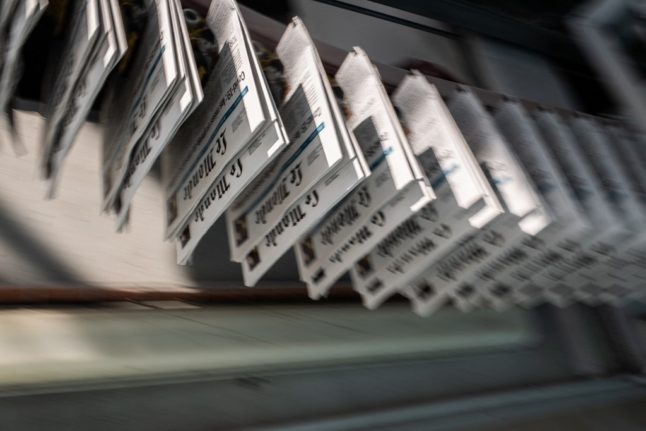Le Monde issued a hugely unusual personal apology to Macron over the article, written by the researcher Paul Max Morin after the president made a sensitive visit to the former French colony late last month.
In his article, Morin argued that a comment made by Macron in Algeria about a “love story that has its tragic element” glorified the colonial past and represented a step back from his previous attempts for a more modern attitude towards the history of France in the North African country.
“Reducing colonisation in Algeria to a ‘love story’ is the culmination of Macron’s shift to the right on the memory question,” Morin argued in the piece. But Le Monde said that it had later deleted the piece as Morin had misinterpreted the quote.
“While it could be subject to different interpretations, the phrase ‘a love story that has its tragic element’ used by Mr Macron did not specifically refer to colonisation — as was written in the piece — but the long history of relations between France and Algeria,” it said.
“Le Monde apologises to its readers as well as the president of the Republic,” it added.
“Inexplicable and inexcusable’
But the move was followed by a torrent of criticism, especially from figures on the left.
“An op-ed was pulled for a quote Macron made which he did not like,” tweeted far-left leader Jean-Luc Melenchon. “It is a new low in the collapse of a newspaper that was once a point of reference.”
“Staggering censorship,” added Edwy Plenel, a former editor-in-chief of Le Monde who went on to found the investigative website Mediapart.
Morin himself told the Liberation daily that “pulling a piece is an abnormal practice and incomprehensible.”
“Inexplicable and inexcusable censorship by Le Monde,” tweeted the leading French economist Thomas Piketty. “We can disagree with the piece, but not delete it because it displeases the Elysee.”
There was no immediate comment from Macron’s office.
The controversy is doubly sensitive given it was Le Monde which in October 2021 quoted closed-door comments by Macron describing Algeria’s system as “politico-military” that prompted a new crisis in relations with Algiers.
“When we make mistakes that are our fault, it’s normal to apologise to people who may have been offended, starting with our readers,” the director of Le Monde, Jerome Fenoglio, told AFP.
Macron in his speeches portrays himself as a champion of the free press but there have been episodes in the past that, according to critics, reveal a more thin-skinned attitude.
In November 2020, the Financial Times pulled a piece that was bitterly critical of France’s policy in the fight against Islamist extremism. Macron followed up with a letter to the paper bitterly attacking the article.



 Please whitelist us to continue reading.
Please whitelist us to continue reading.
Member comments